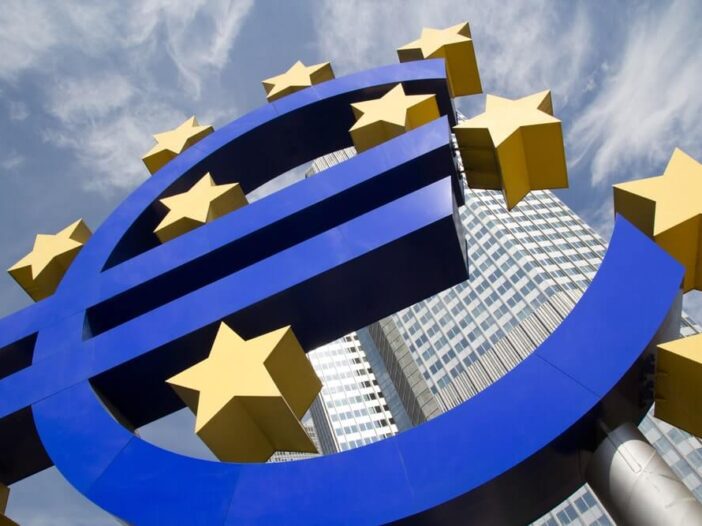Australia’s economic boom was rudely interrupted by the 2008 sub-prime crisis in the US. And then the European Sovereign Debt Crisis that followed. It took 13 years for the ASX200 to recover its 2007 level. Before COVID knocked it out cold.
Today, I want to warn you of another foreign risk that is brewing. In fact, it may already have sparked and could soon catch fire.
If it does, it threatens to once again undermine Aussie markets disproportionately. That’s because of our commodity export focused economy. But you can’t start the story at the end…
You’ve probably heard a bit about the political chaos engulfing Europe at the moment. There are all sorts of facets to it, but I believe there is one underlying story.
The German government is hoping to ban the second most popular political party in the country.
The German budget was ruled unconstitutional.
A so called ‘far-right’ leader won the Dutch election late last year.
Marine Le Pen’s ‘far-right’ party is likely to win the upcoming EU Parliament elections this year. In fact, right-wing populists and eurosceptics could win the upcoming EU elections outright, leaving the unelected but more powerful EU Commission hamstrung.
In Poland, the government is arresting former government ministers and raiding the national broadcaster.
The Financial Times claims to have uncovered a secret EU plan to sabotage the Hungarian economy if it refuses to allow further aid to Ukraine. (A good reminder that the EU operates like the mafia.)
Consider the issue of protesting farmers in more depth. Sure, this is practically a tradition. But it is spreading around the EU to countries that don’t usually feature such protests, and it is reaching new extremes too. Highways are getting paved with manure, Autobahns clogged with tractors, Paris is being starved out, and the list of countries with farmer protests is growing fast.
The Aussie media’s coverage of the protests had me pounding my fist and swearing out loud this week. This report from News.com.au is just infuriating….
Two protestors have hurled soup at the bulletproof glass protecting Leonardo da Vinci’s iconic painting, the Mona Lisa, in Paris’s Louvre museum.
The act of vandalism on Sunday, which came as French farmers protested across the country, was the latest in a string of similar attacks against artworks to demand more action to protect the planet.
The rest of the article goes on to infer and insinuate that there’s a connection between the Riposte Alimentaire protestors defacing art and the vast numbers of farmers which took to the streets to protest against government policies. But that is misleading, if I’m being kind.
Riposte Alimentaire, the group which threw soup onto the Mona Lisa’s protective glass, is an environmentalist movement that focuses on climate change policies. They want regulations on food to make it more sustainable.
The farmer protestors across Europe are protesting against precisely those sorts of environmental regulations, because it makes their livelihood unsustainable. They complain that they cannot afford the rules and that their jobs are overwhelmed with green legislation paperwork.
To imply they are somehow aligned is just outrageous. Why would the Australian media mislead people in this way?
Well, at the heart of all this chaos in Europe is one simple campaign: Net Zero.
Sure, it’s causing plenty of political and economic disruption in Australia too. But, I suspect, the disruption it’s going to cause in Europe will actually impact our economy and stocks just as much. The protests and political chaos you are seeing are the canary in the cobalt mine.
The reasons I’m worried are simple. If the green energy transition continues to cause economic malaise and political instability in Europe, this will impact commodity prices by crashing demand.
Net Zero requires a dramatically lower standard of living. It requires dramatically less manufacturing. It requires a dramatically higher cost of living. And it requires dramatically more money to fund green energy projects, with Europe already on the brink of another sovereign debt crisis.
In the past, I had hoped Net Zero would trigger a commodity demand boom because of how metals and minerals intensive it is to build a green energy system. But what is happening across Europe is the failure of the energy system instead.
Green energy projects are being cancelled and abandoned because of impossible costs. The true cost of energy storage is being revealed as uneconomical too. The infrastructure needed to make renewables viable will cost trillions. The whole project is looking iffy.
Consumers are responding. EV sales fell 25% last month in Europe, and as a share of the total are declining in the US. Even green energy companies are worried that governments won’t stick to their commitments to keep the subsidies coming, given what a disaster it has been so far.
Europe is phasing out energy without replacing it with reliable alternatives. Instead, the continent is now reliant on wind and solar energy, at the margin. And when neither show up, industries and households are asked to cut energy demand. But that’s no way to run an economy. Well, not a modern industrialised one…
The green energy transition is failing. Europe is not transitioning from fossil fuels to green energy. It is transitioning to an unstable energy system which destroys the economy. Under those conditions, commodity demand won’t soar due to Net Zero, it’ll wane.
Germans now use less energy per capita than at anytime since the ‘70s. Industries are fleeing the country. GDP is flat for the past six quarters. The population is supporting the farmers’ protests and political parties that question Net Zero because they agree.
The European population has not shifted right-wing, as the newspapers and pundits suggest. They have just decided to vote for the parties that promise to put an end to this mess. The parties they voted for in the past have swung left-wing by adopting these policies.
That’s why denigrating the supporters of right-wing parties is a terrible idea. The established parties drove them into the hands of those populist politicians. It is a reaction from the electorate to their governments.
Now, I’m hoping that the political chaos in Europe is a sign that governments are about to change course. That’s what happened over Brexit. The Brexit Party popped up out of nowhere, won the EU elections a few weeks later, and the UK government got the message.
Today, even the German Greens Party is having second thoughts, proposing a transition back to coal use, and this ‘pigs might fly’ moment as described by Euractiv:
The European Green Party is set for an internal battle over climate targets at a party congress this weekend (2–4 February), with the German Greens pushing to postpone the climate neutrality goals by five years and scrap parts of the gas and oil phase-out policies.
In the UK, embattled Prime Minister Rishi Sunak was among the first to begin to lighten Net Zero legislation…very slowly.
If Europe changes course and abandons Net Zero, that’s great news for fossil fuel demand. If they persist and descend into ever more political chaos, the continent’s economy will crash, causing commodity prices to drop…fast.
Aussie investors need to keep one eye on the news coming out of Europe this year, just as they did in 2012.
Kind Regards,
 |
Nick Hubble,
Editor, Strategic Intelligence Australia

